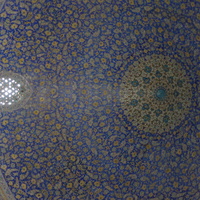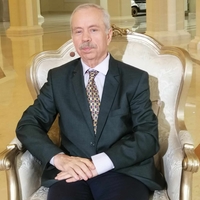Papers by Elena Fred Fellner
The 9/11 Legacies Project, 2022

Politics of Pasts and Futures in (Post-)Imperial Contexts, 2024
Past experiences with empire, whether positive or negative, play an important role in Iranian opp... more Past experiences with empire, whether positive or negative, play an important role in Iranian oppositional online spaces and collective memory more broadly. The Golden Age of the Achaemenid empire, the mytho-history of the Shahnameh, and the supposed decline following Iran’s conquest by Arab-Muslim armies all serve as reference points to glorify the “Iranian nation,” condemn the Islamic Republic, and (re)define what it means to be Iranian. Drawing on three case studies about heroization discourses surrounding recent protest “martyrs,” this chapter analyzes how Iranian memories of empire shape discourses both on diagnoses of Iran’s present woes as well as expectations regarding its near future. It argues that references to select episodes of Iran’s past are used to imagine a different version of the Iranian nation, separate from government-sanctioned ideology, which exists in a state of tension between genuine revolutionary enthusiasm and the necessity to mobilize for further protests. Heroizing narratives and the historical reference points they draw on thus serve as vehicles for debating the boundaries and possible future(s) of the national collective.

Helden.Heroes.Héros, 2024
Bodies communicate, not only through spoken language, but through facial expressions, gestures, o... more Bodies communicate, not only through spoken language, but through facial expressions, gestures, or their positions in a fixed space. What is true for ordinary people is even more so for heroized figures whose every gesture, spoken word or action works as a vehicle for debating larger-than-life questions, such as: Who am I, who are We, and who are They? What happened in the past, what holds value for us in the present, and what will the future bring? And who gets to decide these things? My analysis will focus on the death of Iranian wrestling champion Navid Afkari, who was executed in September 2020 allegedly for killing a security officer during the nation-wide protests that rocked the country in December 2017/January 2018. Drawing on commemorative and informative video material published on YouTube and Instagram, I argue that physical gestures as well as repeated patterns of speech play an important role in giving shape to a heroizing narrative that emotionally affects its audience.
British Journal of Middle Eastern Studies, 2024
States' communication with foreign audiences is commonly conceptualized as either propaganda (by ... more States' communication with foreign audiences is commonly conceptualized as either propaganda (by autocracies), public diplomacy (by democracies), or PR work (by public relations agencies). This article argues that strict separation between these areas of foreign policy communication hinders more than helps our understanding of how states attempt to garner support among a global audience. Theorizing Iran's ex-foreign minister Mohammad Javad Zarif's communication on Twitter as a fusion of PR, public diplomacy, and propaganda with emotionally evocative performances of nationalism, this article shows how foreign policy communication develops in tandem with, but also in contrast to audience reactions and discussions.
Journal of Science, Humanities and Arts - JOSHA
This is one of the works that have been selected by our editors as a winner of our Demetrios Prei... more This is one of the works that have been selected by our editors as a winner of our Demetrios Preis 2018! The Article presented by Elena Ricarda Fellner from Germany was selected because of the importance to have an opinion as a Woman living in countries like Iran and the conflicts they have to confront to protect their opinions. The purpose of this work was to show the carrier, the personal improvement of Zahrā Rahnavard and especially, the improvement of Women's rights with the history of Iran as a background.











Uploads
Papers by Elena Fred Fellner